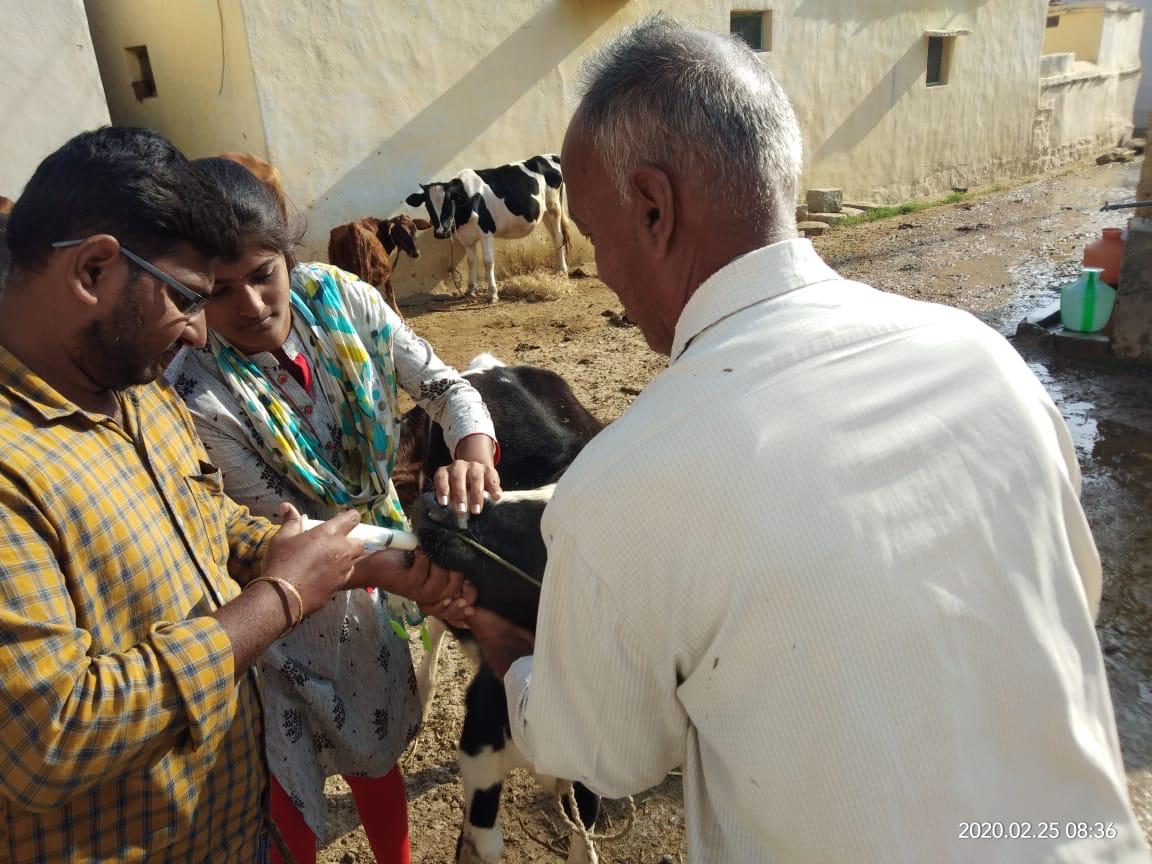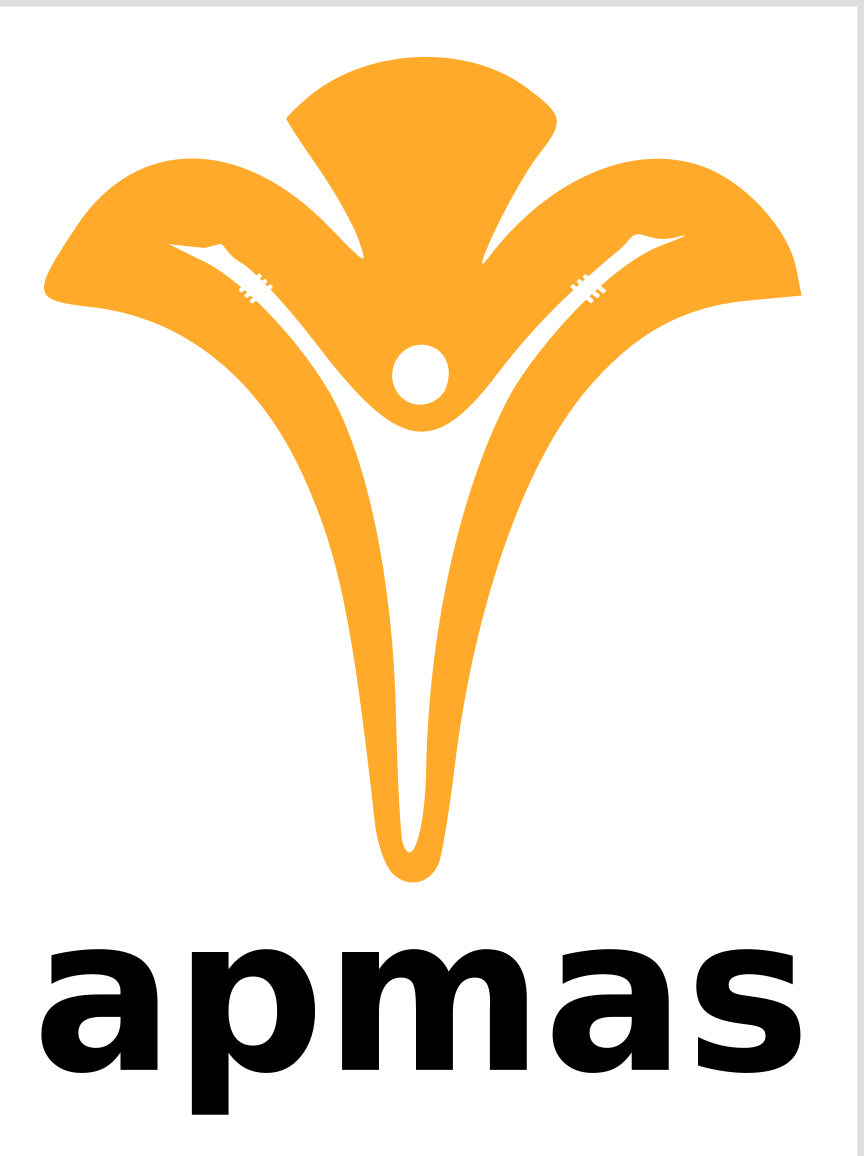Project Title: Padi Pantalu - Achieving Food and Fodder Security through Sustainable Farming
Background
The global food security challenge is straightforward, by 2050; the world must feed 9 billion people. The demand for food will be 60% greater than it is today. The United Nations has set ending hunger, achieving food security and improved nutrition and promoting sustainable agriculture as the second of its 17 Sustainable Development Goals (SDGs) for the year 2030.
In India, agriculture accounts for 18% of the economy’s output and 47% of its workforce. India is the second biggest producer of fruits and vegetables in the world. Yet according to the Food and Agriculture Organization (FAO) of the United Nations, some 194 million Indians are undernourished, the largest number of hungry people in any single country. An estimated 15.2% of the population of India is too malnourished to lead a normal life. A third of the world’s malnourished children live in India. Rural and farming communities typically experience a higher incidence of poverty and hunger. Condition of food and fodder security in India is gloomy and similar to African countries. Disaggregated trend of food and fodder security shows that problem is high in poor states and the government has passed Food Security Bill in India.
The Andhra Pradesh Government is taking up several schemes. As per Socio-economic survey 2016-17, the Andhra Pradesh Government envisages to ensure that every household has a monthly income not less than 10,000 from livestock sector. The Government identified livestock sector as one of the growth engines for socio- economic development. As the growth of this sector is dependent on the availability of fodder, the Government has enacted a “Fodder Security Policy for Livestock 2015-20”. It supplied silage, Total Mixer Ration (TMR) and fodder to the farmers on subsidy price so that the profit from dairying remains high. The ‘Oorura Pasugrasam’ (grass in every village) scheme has been implemented wherein farmers are encouraged to grow grass taken up in a massive way and till now, about 30,000 acres are covered under the scheme.
Addressing the problem of hunger and malnourishment in an economy such as India’s requires certainly improvements in the productivity of the agriculture sector, particularly smallholder farms. Food and fodder security cannot be achieved in India without improving the level of overall agriculture production and fodder development.
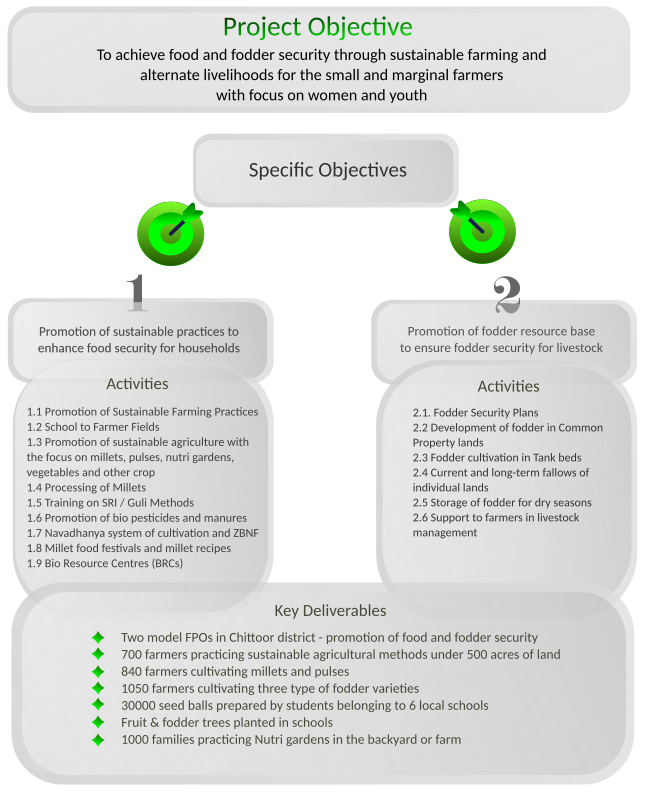
Duration of the Project: Three years eleven months starting from February 2020 till December 2023.
Project Location: Two mandals - Kurubalakota and Valmikipuram (Vayalapadu) in Chittoor district of Andhra Pradesh
Project Budget: 2,56,53,718 /- INR
Project Donor: AEIN, Luxembourg
Project Beneficiaries: 1400 farmers as direct and 3000 farmers as indirect beneficiaries including small and marginal categories, dairy farmers, shepherds, landless involved in agricultural work, people having dairying, goat/sheep rearing, poultry as their occupation with special focus on women and youth.
Case Studies
- Case study on Enhancing food security through establishment of Nutri Shop
- Case study on Integrated Fodder Development Plot
- Case study on Nutri gardens: A sustainable model for Nutritional security
- Case study on Seed balls for regenerating commons
- Case study on Animal health camps
- Case study on five layer model
- Case study on Millet food mela
- Case study on System of Ragi Intensification (SRI)
- Case study on Azolla – A Supplementary and sustainable protein feed for cattle
- Case study on Breeding Sheep: Starting With your Ram
- Case study on Chaff Cutter
- Case study on Breeding Rams
- Case study on Zero Budget Natural Farming (ZBNF)
- Endline Study
Material Developed
- Calf Rearing
- Azolla
- Repeat Breeding - Flyer
- Mastitis - Flyer
- Breeding Rams - Flyer
- Integrated Fodder Plot - Flyer
- Foot & Mouth Disease - Pamphlet
- Enterotoxaemia/Pulpy Kidney Disease - Pamphlet
- Importance of Nutri/Kitchen Garden Pamphlet
- Foot rot disease Flyer
- Guli method of Ragi cultivation Pamphlet
- Lumpy Skin Disease Poster
- Navadhanya Farming Information Flyer
- Nutri Garden Poster
- Bio - Decoctions
- Vermi Composting
Video documentation
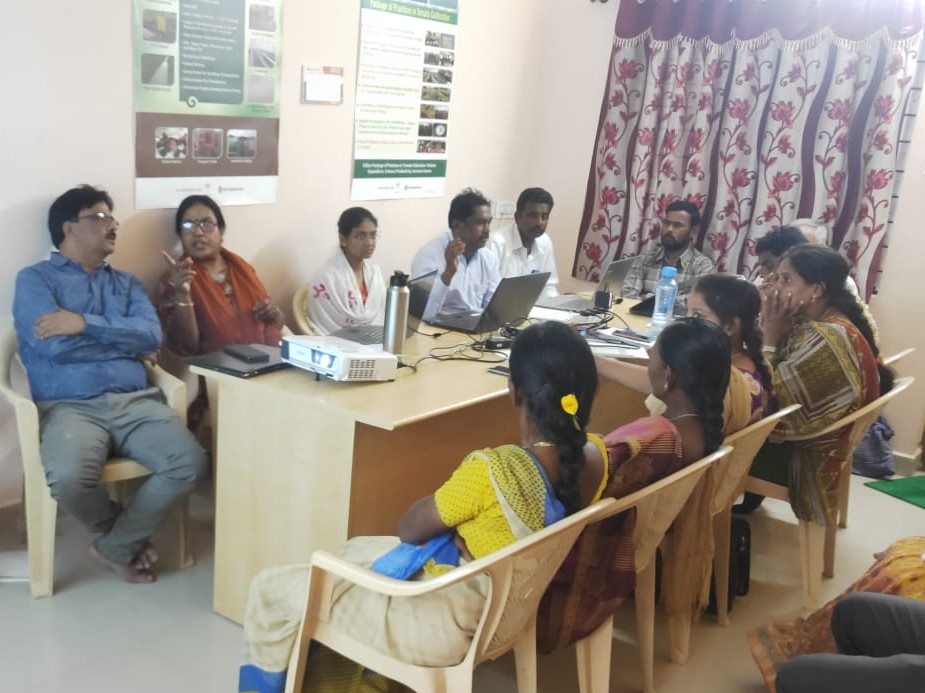
Project orientation programme on Padi Pantalu to FPO CEOs and BODs
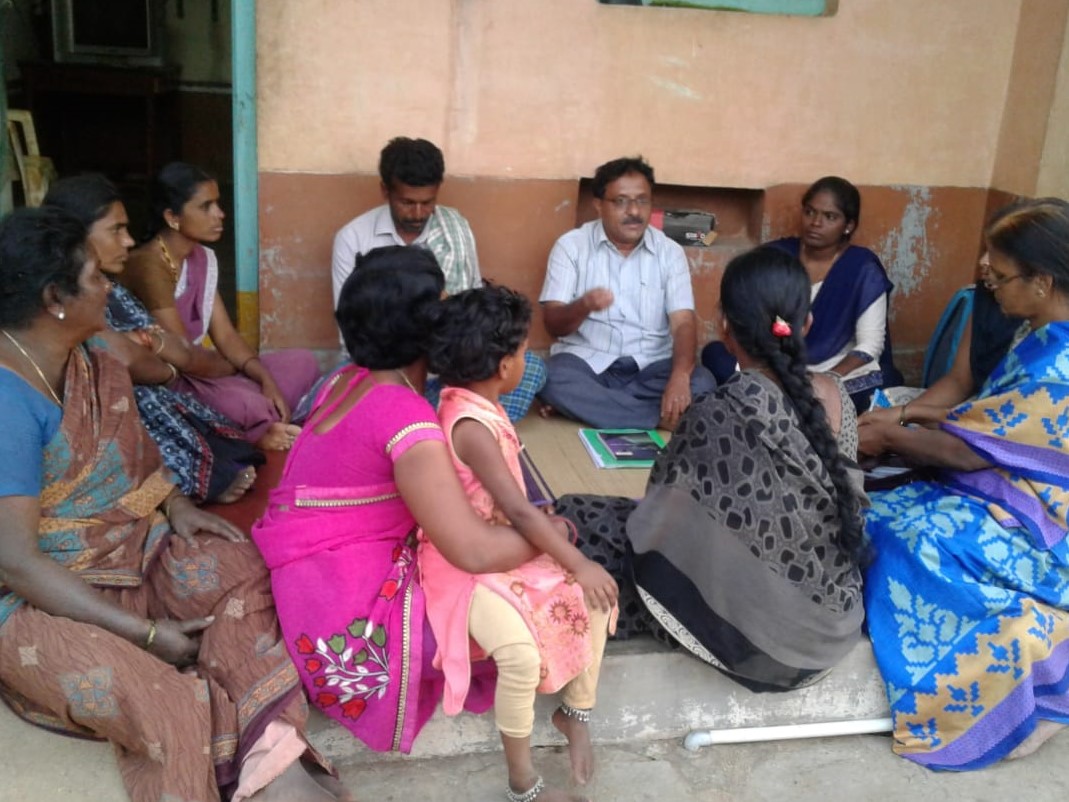
Creating awareness on the project to local farmers
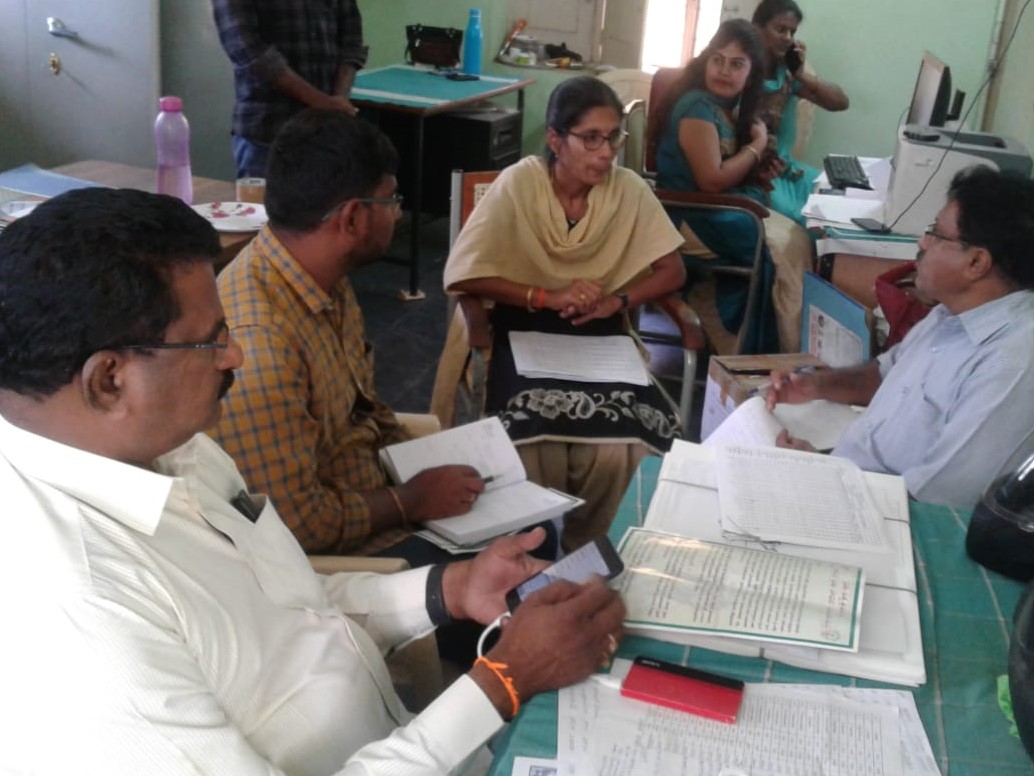
Padi Pantalu staff meeting with Agriculture officers
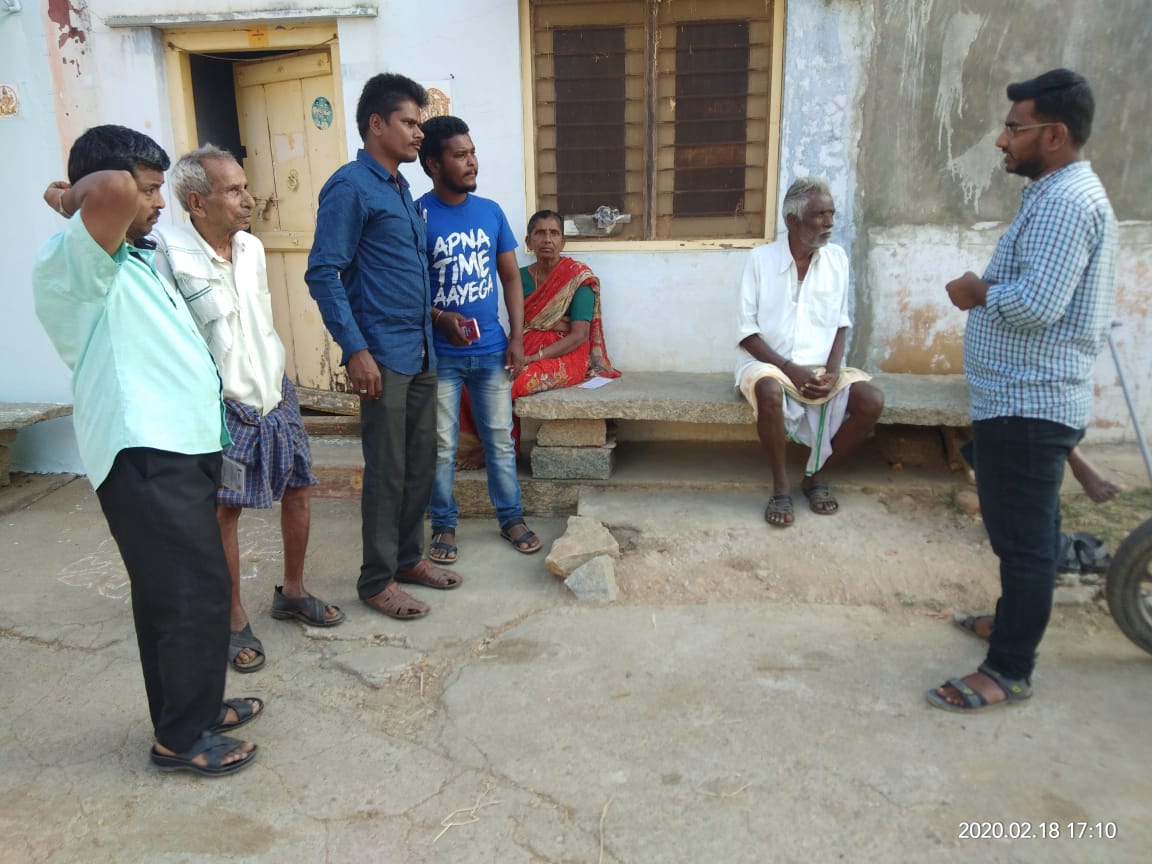
Farmer mobilization by the staff
